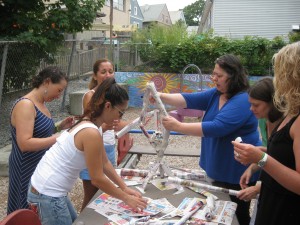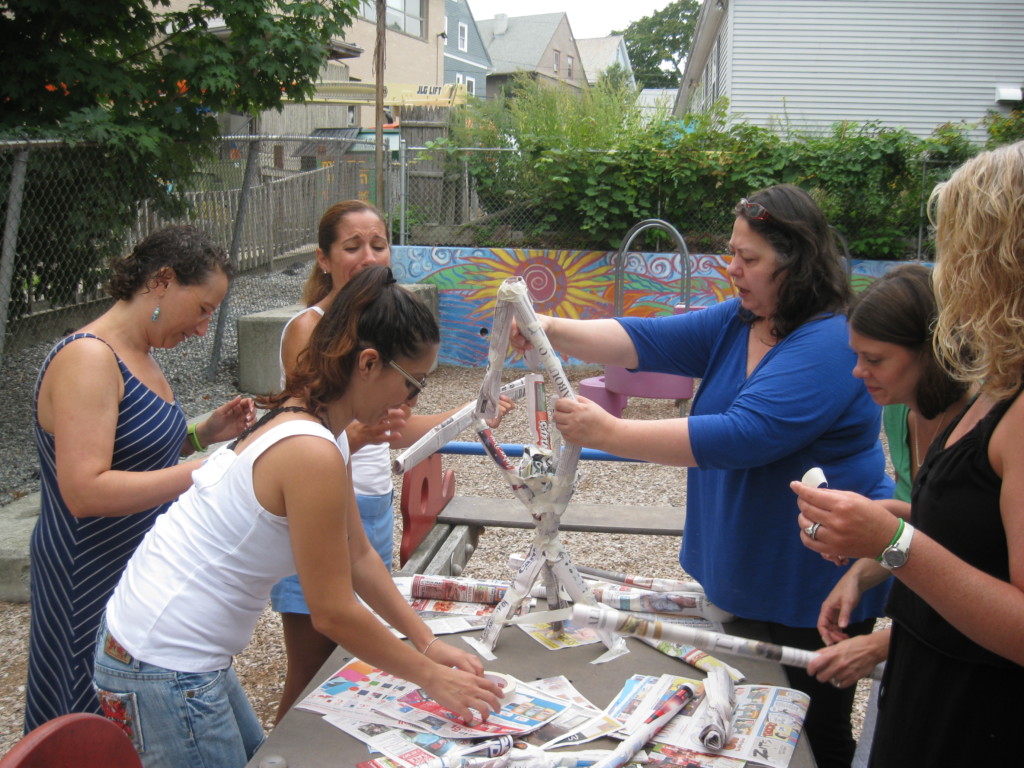Why do people hate their jobs? Is it because their bosses are idiots and never listen to the employees? Is it that their work is meaningless and gives them a feeling of emptiness and a wasted life? Is it that they have no power or autonomy to change whatever isn’t working in their place of work? Is it that the work is never-ending, causing pressure without any real reward or relief? One thing is clear – many people aren’t happy at work.
A 2014 Gallup poll showed that only 20% of workers feel engaged at work! Only 18% of white collar employees said they had time for creative or strategic thinking at work.
Unfortunately, schools are often no better than other white collar workplaces. Sure, we have the joy of working with children, but there are often relentless external pressures on teachers. There may be fear of being creative, of taking initiative, of trusting one’s gut. The educational system is not looking for whole human beings to teach students; it is looking for people to deliver content to students. Blended learning and the flipped classroom, while brilliant and well intentioned, can diminish the role of the teacher and put more pressure on her to deliver the content as efficiently as the machine. It’s the story of John Henry versus the steam drill.
The common core, also the work of many intelligent and well intended people, is essentially meant to be a fail-safe so that every child, no matter how inept or ineffectual the teacher, will receive the bare minimum of everythin g they need to know. Instead of honoring teachers, the Common Core often feels to teachers like it is robbing teaching of creativity, joy, and expertise, transforming teaching from an honored profession into a nearly robotic delivery system for curriculum developed in an ivory tower in Washington, DC.
g they need to know. Instead of honoring teachers, the Common Core often feels to teachers like it is robbing teaching of creativity, joy, and expertise, transforming teaching from an honored profession into a nearly robotic delivery system for curriculum developed in an ivory tower in Washington, DC.
While we are hyperfocusing on the standards, benchmarks and achievement of children we never really talk about the lives and careers of teachers! This is a shocking mismatch between what we know to be true and what we want to be true. Studies show that teachers have more impact on student learning than any other factor, including special services, facilities, curriculum or leadership. Our society is trying to circumvent the need for happy, talented, experienced teachers in the classroom.
How much do we know or care about teachers? Are they fulfilled? Are they listened to? Are they completely empowered and encouraged to make change? Do they have the time, resources, and trust to be creative and adventurous as they teach? Are they valued as whole, complex people who are respected and admired for the difficulty and complexity of their work?
I have a dream that JCDSRI will be a kind of utopian workplace. While competing financially with the big independent schools is impossible for a school our size, compensation does not have to be the most important factor in job satisfaction. What if all of our teachers knew they were respected and they were trusted and empowered to make changes to the school as they saw fit? What if teachers felt safe enough to admit their weaknesses and received high quality professional development to help them develop their craft? What if they were able to bring their own passions and interests to school? What if our school created a shared common vision of excellence that created the kind of unity and teamwork usually found on professional sports teams and in elite military units? What if staff meetings were so efficient we could end them early and with a feeling of accomplishment and success? What if teachers trusted and respected each other to the point that there were never feelings of competition and politicking?
How is such a thing possible?
I have a 3 part plan to begin creating this utopian workplace this year.
- Protocols for staff meetings
This year, we will be experimenting with various protocols at staff meetings to ensure they run smoothly, all voices are heard, and that all staff members feel responsible and have the authority to make changes to the school when they see the need. We will begin by using the protocols and language of Holacracy. This will be a change in the way we operate, but I believe will help us hear each other better, make decisions faster, and get more done.
- Transparency of roles and projects
Every team in the school operates in its own ‘circle.’ For example, the Board, the PA, Marketing and Admissions, the general studies team, the Jewish studies team, the lower grades team, and the upper grades team each represent their own working group that is responsible for its own set of projects and goals. We will be using an online platform to track what projects are open in which circle, and who is responsible for each aspect of a project. Getting work done faster, with clarity, and clear goals and responsibilities is critical to having a resentment-free workplace.
- Culture of Awesome
This is the most important element of our ability to change. We will be making many changes to the way we operate next year. One can approach this with dread and resentment – or with tenacity and optimism. Bringing this tenacity and optimism is not just a suggestion to make you feel better – it is a job requirement! For our school to become a groundbreaking, teacher-centered, utopian workplace, we need everyone on board. This means being willing to have a growth mindset and embrace change. It means having tolerance for some mess, confusion, and rapid experimentation. And it means obliterating “Devil’s Advocate” from your vocabulary. We will become a school where each employee offers solutions rather than pointing out problems.
Each one of these points need further explanation, training, and experimentation, all of which will take place during teacher week. Much like taking a trip, we have a destination in mind, but we will have to steer as we go. I hope that this vision of creating a teacher centered, positive, energetic, collaborative and holistic workplace feels as exciting to you as it does to me. Together we will make our school happier, healthier, profoundly innovative and awesome!
